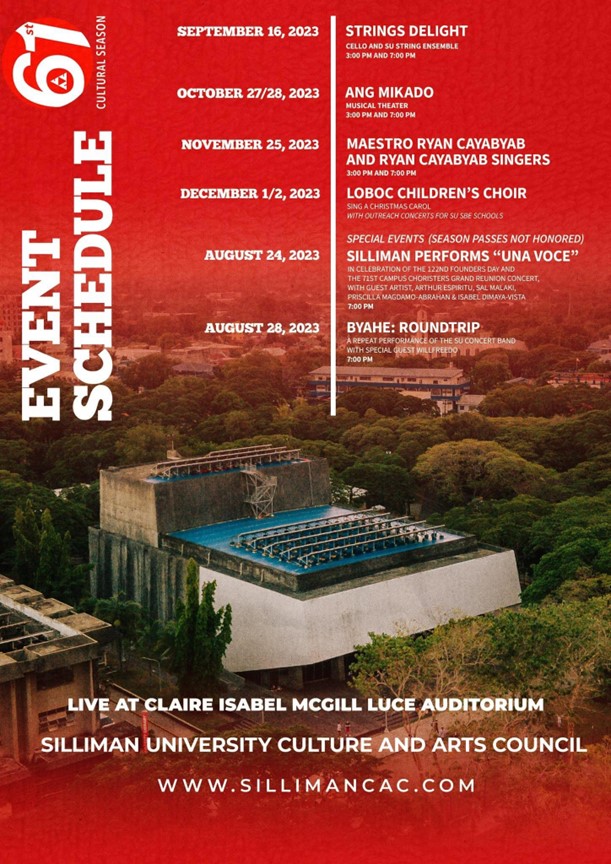
Event Schedule for the 61st Cultural Season
Welcome to the 61st Cultural Season of Silliman University and Dumaguete City!
The Culture and Arts Council begins another chapter in its storied history by showcasing the best in music, theatre, dance, film, the visual arts, literature, architecture, and many others for the new school year, going on with its mandate to shape culture and the arts not just for the Silliman University community but also Dumaguete City and Negros Oriental.
There have been many turning points in the more than sixty-year history of the Culture and Arts Council in Silliman University: the group’s founding as the Cultural Affairs Committee in 1962 by a ragtag bunch of culture lovers led by the buxom wife of an American missionary; the building of the Claire Isabel McGill Luce Auditorium in 1974, which became the primary venue for the group’s cultural shows; the institution of a cultural fee in 1989, which led to the formalization of culture as a mandatory component in every Sillimanian student’s education…
It has been a history marked by countless dynamic turns, enlivened by people of passion. Because art, first and foremost, traffics in passion—it is the currency of the business, and the CAC would not have been anything without that sense of risky resolve to bring to life artistic expression.
Something of that dynamic turn came quietly in 2006, in the waning days of summer before the official start of the school year in Silliman University. Dr. Ben S. Malayang III has just been newly-installed as the eleventh President, and much of the campus was in ferment – there were feelings that things were moving along, that much of the future for Silliman University was there for the shaping.
In May of that year, Elizabeth Susan Vista-Suarez became the Chair of the CAC, a position she once held in 1989-2001, and she quickly assembled a membership to the committee that seemed to defy, or at least ‘redefine,’ the mechanisms with which things were usually done in the business of culture in the university.
The CAC had traditionally been a small group of like-minded people with membership culled from the various colleges and departments in campus, complete with token representations from the community, the alumni, and the student body. And traditionally, its chairperson was the present Director of what was then the School of Music and Fine Arts, which would soon become the College of Performing Arts in 2001, and later the College of Performing and Visual Arts in 2006.
But the CAC that began to work in 2006 was a group that had ballooned to accommodate many fresh faces, culled not just from the university’s rank and file, but also from the larger Dumaguete community—and along with that came an injection of fresh ideas, many of which proved revolutionary: a more compact marketing effort, a balance in cultural programming, and a reach towards the institutionalization of a calendar marking off distinct cultural seasons, each one fully-formed before the start of any school year. It was, in other words, the CAC growing into sophistication, and in the years since then, its efforts would accumulate to elevate the group and Silliman University to a higher national profile, which would eventually lead to Dumaguete becoming a main cultural hub in the country, a mandatory stop for many of the Philippines’ top cultural performers and groups. Dumaguete, of course, had always been like that—but after 2006, it became even more so.
By 2007, upon the urging of President Malayang, the CAC also began to lay the groundwork for a system of cultural work—clarifying functions, setting parameters, and defining goals—in line with the mission and the vision of Silliman University, and guided by the university’s new thrusts centering around Faith, Instruction, Research, and Extension—or FIRE. The ultimate goal was to efficiently and effectively spread culture, not only to the constituents of Silliman University, but to the whole region as well, and with Faith in mind, the CAC tasked itself to pursue this goal by strengthening its foundation, by ‘building bridges,’ and by ‘expanding territory.’ It was outreach with a cultural blend, Silliman-style.
In 2016, to recognize the important cultural work of the CAC and its impact on the community, it underwent a name-change, graduating from a Cultural Affairs Committee to a Culture and Arts Council, under the guidance of Diomar C. Abrio as Chair.
The CAC’s experimentations with packaging culture have always been an exercise of gleeful risk-taking. It has proved one thing: Dumaguete can carry culture like the best of them. It has earned its reputation as being arguably the only group moving for the furtherance of art and culture on this side of Negros Island.
Welcome to a further celebration of culture.

Since Silliman University’s founding in 1901, a very important part of campus life has been its cultural fare. Every week, there is always a concert, a literary workshop or poetry reading, a play, a dance, an exhibit, a film showing, or some other cultural activity taking place in a number of exhibition halls and performance spaces, such as the Claire Isabel McGill Luce Auditorium and Gallery, the Woodward Little Theater, the Guy Hall Music Sala, the Silliman Hall Gallery, the Amphitheater, the Main Library, the Gymnasium, the Audio-Visual Theater, the End House Gallery, the Silliman Church Catacombs, and others. Before the Luce Auditorium’s completion in 1975, Shakespearean plays were regularly presented in the Amphitheater, and prestigious performing companies such as Le Grand Ballet Classique de France and such musical luminaries as pianist Susan Starr have performed in the Gymnasium.
In 1962, the Cultural Affairs Committee [CAC] was formed under the able chairmanship of Prof. Miriam G. Palmore, who was the former director of the School of Music and Fine Arts (now the College of Performing Arts). Among the famous artists and performers in those early years of the Luce Auditorium included the Cultural Center of the Philippines Dance Company, Taipei Children’s Choir, French concert pianist Nicole Delannoy, German violinist Denes Zsigmondy, American soprano Julia Finch, Swiss pianist Nicole Wickihalder, Filipina pianist Cecile Licad, American violinist Stanley Plummer, and popular local singers such as Pilita Corrales who was then a singing superstar in Australia. Silliman’s own artists and performers also dominated the cultural landscape, including the Men’s Glee Club under the baton of maestro Albert Faurot, the Silliman Young Singers and the Luce Choral Society under Mrs. Isabel Dimaya Vista, the Silliman Dance Troupe (now the Kahayag Dance Troupe) under Mrs. Lucy Jumawan, the Aldecoa Family Ensemble, and the Portal Players under Mr. Amiel Y. Leonardia.
The CAC, under the leadership of chairpersons including Mrs. Isabel Vista, Dr. Elizabeth Susan Vista-Suarez, Dr. Laurie Raymundo, Ms. Eva Rose Repollo, Prof. Joseph B. Basa, and Prof. Diomar Abrio has continued its mission to bring to Silliman University and the Dumaguete community various cultural representations aimed at exposing them, especially students, to all the arts—with a subsidized fare, perhaps the most generous of its kind in the country, allowing students and the Dumaguete community to see cultural presentations by such national companies as Ballet Philippines, Philippine Educational Theater Association, the Manila Symphony Orchestra, Ballet Manila, Dulaang U.P., the Philippine Philharmonic Orchestra, the Philippine Madrigal Singers, Repertory Philippines, Tanghalang Pilipino, the Bayanihan National Dance Company, the Ramon Obusan National Dance Company, the New Voice Company, and others.
Part of the functions of the CAC is also to help promote Philippine culture by especially promoting Filipino artists, and to screen or audition University performing groups who wish to perform outside and inside of the University.
The CAC was renamed the Culture and Arts Council in 2016.
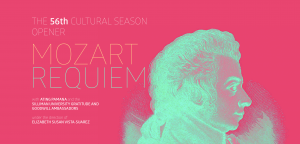
MOZART REQUIEM
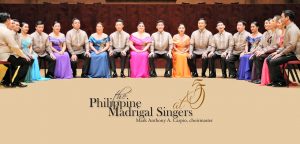
THE PHILIPPINE MADRIGAL SINGERS AT 55
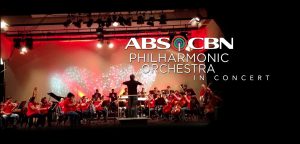
THE ABS-CBN PHILHARMONIC ORCHESTRA REDUX
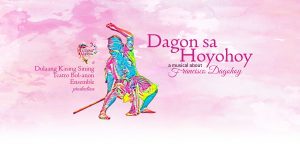
DAGON SA HOYOHOY: A MUSICAL ABOUT FRANCISCO DAGOHOY
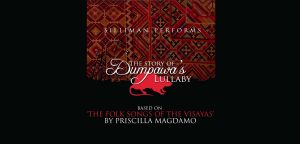
SILLIMAN PERFORMS: THE STORY OF DUMPAWA’S LULLABY

GUGMA: A CONCERT OF THE WINNING SONGS FROM THE VALENTINE SONGWRITING COMPETITION

SONG OF SOLOMON: A NEW MUSICAL

THE RYAN CAYABYAB SINGERS: CHRISTMAS IN DUMAGUETE

THE XAVIER STAGE PRESENTS WILLIAM SHAKESPEARE’S A MIDSUMMER NIGHT’S DREAM

THE SILLIMAN UNIVERSITY DANCE COMPANY IN CONCERT
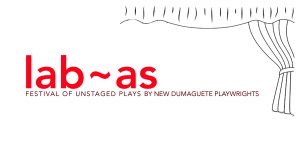
LAB-AS: FESTIVAL OF UNSTAGED PLAYS BY NEW DUMAGUETE PLAYWRIGHTS

BALLET PHILIPPINES

THE 2019 VALENTINE SONGWRITING COMPETITION

SILLIMAN FILM OPEN 4

HIMIG AT SAYAW 2019

CINEMA REHIYON 11 DUMAGUETE

THE ALBERT FAUROT LECTURES ON CULTURE AND THE ARTS

THE EDDIE ROMERO FILM SERIES
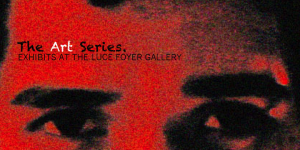
THE ART SERIES
Functions of the Culture and Arts Council
In line with the mission and the vision of Silliman University, the Culture and Arts Council designs and follows an annual cultural program guided by Faith, Instruction, Research, and Extension (or FIRE). The cultural program’s foundation is built on the three basic thrusts of education, namely Instruction, Research, and Extension – but it is Faith which binds these thrusts together for the efficiency and success of the Council’s goals.
The ultimate goal of the CAC is to efficiently and effectively spread culture, not only to the constituents of Silliman University, but to the whole region as well. With Faith in mind, the Committee will pursue this goal by strengthening its foundation, building bridges, and expanding territory.
The Culture and Arts Council has the following general functions and mandates:
- To be in charge of bringing to Silliman University and the Dumaguete community various cultural representations aimed at exposing them, especially students, to all the arts. These presentations—which include stage performances, concerts, exhibits, lectures, screenings, and others—should be a balance of all the artistic forms, and constitute a Cultural Season which runs from June to May of every schoolyear.
- To facilitate the management of the Cultural Season which is divided into the First Semester and the Second Semester, with each half featuring at least four major shows included in the coverage of the season pass, plus special shows and events not included in the coverage of the season pass.
- To help promote Philippine culture by especially promoting Filipino artists.
- To screen and/or audition university performing groups who wish to perform outside of the university and make proper recommendations to the University President.
- To screen and schedule all cultural presentations at the various cultural venues in campus. All student activities should be cleared with the Student Personnel Office.
- To promote local talent by inviting other schools and institutions in Dumaguete City and Negros Oriental to perform at Silliman University.
- To provide a showcase for cultural research and for documented material icons and relics for public viewing.
- To make available funding to various arts groups of Silliman University or colleges in the university who may need support for projects, which are cultural in nature.
- To sponsor local, national, and international performers to schools in specific towns within the province of Negros Oriental.
- To oversee the operations and management of the major cultural institutions in campus, including the Claire Isabel McGill Luce Auditorium and Foyer Gallery, Woodward Black Box Theater, Ariniego Art Gallery, Amphitheatre, Silliman Assembly Hall, and the Rose Lamb Sobrepeña Writers Village.
- To undertake and sponsor special cultural programs over radio, television, or print.
- To undertake summer creative workshops, which include drama, dance, painting, drawing, creative writing, theatre acting and directing, photography, and Rondalla classes.
- To archive all programs, posters, CD and DVD recordings of all shows, exhibits, lectures, and fine music for documentation.
- To set aside a room at the Luce Auditorium or elsewhere which will house these documents and will exist as the Cultural Archive of the Culture and Arts Council.
Members of the Culture and Arts Council
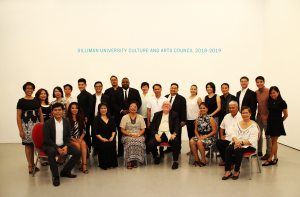
The Silliman University President shall appoint the Cultural Officer of the University who will act as chairman of the Culture and Arts Council. Upon recommendation of the Cultural Officer and the endorsement of the same by the Vice President for Academic Affairs, the President will also appoint all the Vice-Chairs and Members of the Council not later than May previous to the school year they are to serve.
Earl Jude Cleope
Honorary Chair
Diomar C. Abrio
Chair/Vice-Chair for Finance & Marketing
Val Vinarao
Vice-Chair for Architecture and Allied Arts
Ian Rosales Casocot
Vice-Chair for Cinema and Literary Arts
Aljana Cheenee Limuaco
Vice-Chair for Dance
Sonia Sygaco
Vice-Chair for Dramatic Arts
Mark Ian Caballes
Vice-Chair for Music
Onna Rhea Quizo
Vice-Chair for Visual Arts
Moses Joshua Atega
Vice-Chair for Audience Development
Dessa Quesada-Palm
Vice-Chair for Community and Extension
Leo Mamicpic
Vice-Chair for Heritage Research and Archiving
Council Members
Annabelle Lee Adriano, Community (At-Large)
Jacqueline Veloso Antonio, City Tourism
Renelito Caballo, Faculty (SBE)
Camille Enopia Cabrera, SUFA
Irma Lacorte Capucion, Ariniego Art Gallery
Joanne Gomez, Community (At-Large)
Rodolfo Juan, Church Affairs
Marie Christel Ravello Kho, Luce Auditorium
Dennis McCann, Honorary Member
Daryl Robinson, SUSG
Blanche Utzurrum, SUSA
Elizabeth Susan Vista Suarez, Ex-Officio
Isabel Vista, Ex-Officio
Micah Chio
Christian Cuba
Secretariat
Urich Calumpang
Alkene Lamuna
Special Staff
Jessela Marie Mejares
Shem Lord Rosales
SUSG Socio-Cultural Representatives
Jocelyn Limkaichong
Jane Annetthe Lupisan-Belarmino
Grace Sumalpong
Karen Villanueva
Elizabeth Susan Vista-Suarez, chair
Advisory Board
Ticketing Information

All shows at the Claire Isabel McGill Luce Auditorium require tickets with properly assigned seat numbers. Theater rules require us to disallow double-seating or standing in the aisles. We recommend that all patrons arrive at the theater at least 30 minutes before show time. While latecomers can be seated (and only during suitable breaks in the program), the CAC reserves the right to resell (or give away, as the case may be) a seat if the ticket holder is more than 10 minutes late. Tickets for all shows are available at the Culture and Arts Council Office at the College of Performing and Visual Arts Building II and at the theater lobby before every show. Because ticket prices are subsidized by Silliman University, the price range for Culture and Arts Council shows are comparatively cheaper to their Manila or Cebu counterparts, usually in the following range: PhP150, PhP 200, PhP 250, PhP 300, and P500.
SEASON PASSES. There are two sets of season passes issued for every Cultural Season: a season pass for the First Semester, and another season pass for the Second Semester. A season pass is available for P2,500, and entitles the bearer to admittance to the main shows of the Cultural Season at the Luce Auditorium, with a specific seat allocated. These seats, however, can be resold if the season pass holder does not show up 10 minutes after the start of the show.
Subscription Pass. A subscription pass is available for P5,000, and entitles the bearer to admittance to the main shows of the Cultural Season at the Luce Auditorium, with a specific seat allocated in choice spots of the auditorium. These seats cannot be resold even if the Subscription Pass holder does not show up 10 minutes after the start of the show. Subscription Pass holders are allowed access to rehearsals and special by-invitation-only events with the artists and performing groups slated for the Cultural Season, as well as reception dinners for these artists and performing groups. Their names will also be included in the acknowledgement portion of all programmes.
LOST PASSES. You may still attend the performance of your choice even if you have misplaced your season ticket. We will be happy to replace it. If you do not have your pass on the showdate, just show up at the theater and we will have our ushers seat you in the theater. We will need proper identification cards, however, for these circumstances.
NOTICE FOR SILLIMAN UNIVERSITY STUDENTS, FACULTY, AND STAFF. Silliman University students, faculty, and staff can charge their tickets to their tuition or payroll. Please ask the CAC Secretariat for more details.
FOR BULK ORDERS. Persons or institutions interested in buying tickets in bulk will be given a discount. Please ask the CAC Secretariat for more details.
GIFT CERTICATES. Culture and Arts Council gift certificates can make the perfect gifts for your friends who are into culture and the arts. Each Php 500 gift certificate is redeemable for two tickets to any show from June 2018 to March 2019. Certificates cannot be redeemed for cash and cannot be replaced if lost or stolen. Treat certificates as you would cash. Interested parties should call the CAC office.
For ticket reservations and other inquiries, call call (035) 422-4365 or 09173232953.
About the Luce Auditorium
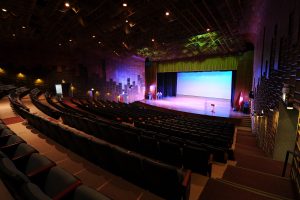
Photo by Greg Morales
The Claire Isabel McGill Luce Auditorium, the largest fully-functioning theater outside of Metro Manila, was built in 1973 and completed in 1975 at a cost of P4.4 million from funds provided mainly by the Henry Luce Foundation, Inc. of New York. Counterpart funding was raised by Silliman University through its alumni, faculty, staff, student body, business community, and from friends here in the Philippines and abroad. The balance was donated by the United Presbyterian Commissions, with significant help from the United Board for Christian Higher Education in Asia based in New York City. The Luce Auditorium was formally inaugurated on the 6th day of October, 1974 with ceremonies dedicating the facility to the memory of Claire Isabel McGill Luce (1923-1971), wife of Henry Luce III, President of the Henry Luce Foundation, Inc. Silliman University’s vision for the Luce is for this world-class facility to continue serving the academic community and the country in the best possible way. In 2008, the Luce Foundation provided additional funds to refurbish the Auditorium, updating its facilities to meet the strictest standards in theater. Work on the premises was completed in July 2008. The University works to maintain and preserve the Luce Auditorium as a center for Culture and Arts in the Central Visayas region, and to continuously cultivate and promote the passion of theatre, music, dance, and other forms of art expression among the students of the university as well as the larger community.
Sponsorship and Contact Information
FOR SPONSORSHIPS: The Culture and Arts Council accepts individual and corporate sponsorships for the Cultural Season. For more information, please ask the CAC Secretariat for the Sponsorship Kit.
FOR INTERESTED PERFORMING GROUPS, ARTISTS, AND CULTURAL WORKERS: The Council also accepts proposals for various cultural shows, performances, exhibits, publications, and others. Ask the CAC Secretariat to obtain a copy of the Project Proposal Form.
Address: Silliman University Culture and Arts Council, College of Performing and Visual Arts Building II, Silliman University, 6200 Dumaguete City, Philippines
Telephone: (035) 422-4365 or 0917-323-2953
Email: [email protected]
Facebook: Like us at www.facebook.com/CultureArtsCouncil
Twitter: Follow us @sillimanCAC
Instagram: Follow us silliman.cac


